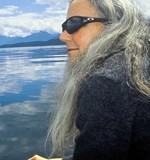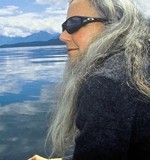Read this blog from salmon biologist Alexandra Morton, claiming her team has discovered salmon alphavirus for the first time in BC. (June 21, 2012)
On March 25, 2012 we purchased 11 farmed steelhead and 3 Arctic Char heads from the Fairway Market in Victoria, BC and sent samples from them for testing for three European farm salmon viruses.
8 came back positive for the salmon heart virus (piscine reovirus)
7 came back positive for Salmon Alphavirus.
7 tested positive for both
This is the first-ever report of Salmon Alpha virus in BC although there is a single report by Dr. Michael Kent, of the disease it causes, Pancreas Disease, in Atlantic farm salmon being raised in BC in 1987. The reason I asked the lab to test for these European viruses is because Dr. Gary Marty, the BC farm salmon vet, reported lesions in farm salmon that caused him to include Salmon Alphavirus in his reports to Mainstream and Marine Harvest on at a least 6 occasions from 2007-2009…
…First recognized in Scotland in 1984, SAV was subsequently detected in Ireland and Norway. There are three closely related viruses in this viral family and they are recognized as serious pathogens of farmed Atlantic salmon and rainbow trout in Europe. SAV 1 is the causative agent of pancreas disease (PD). SAV2 is the causative agent of sleeping disease of rainbow trout. SAV 3 has only been detected in Norway (as of 2007) causing Pancreas Disease in Atlantic salmon and rainbow trout.
Pancreas Disease is spreading in salmon farms the length of Norway. Marine Harvest was recently instructed to slaughter an entire farm in Norway by June 20th (Intrafish June 8). There were 90 cases in 2011 and the virus has spread to 8 farms in northern Norway this year (Intrafish May 31, 2012). Salmon Alpha virus survives well outside the fish drifting through the water spreading the infection. Chile became extremely alarmed when rumours of Salmon Alphavirus popped up there in 2008.
Read full blog: http://alexandramorton.typepad.com/alexandra_morton/2012/06/first-detection-of-salmon-alphavirus-in-bc-farmed-steelhead-1.html




